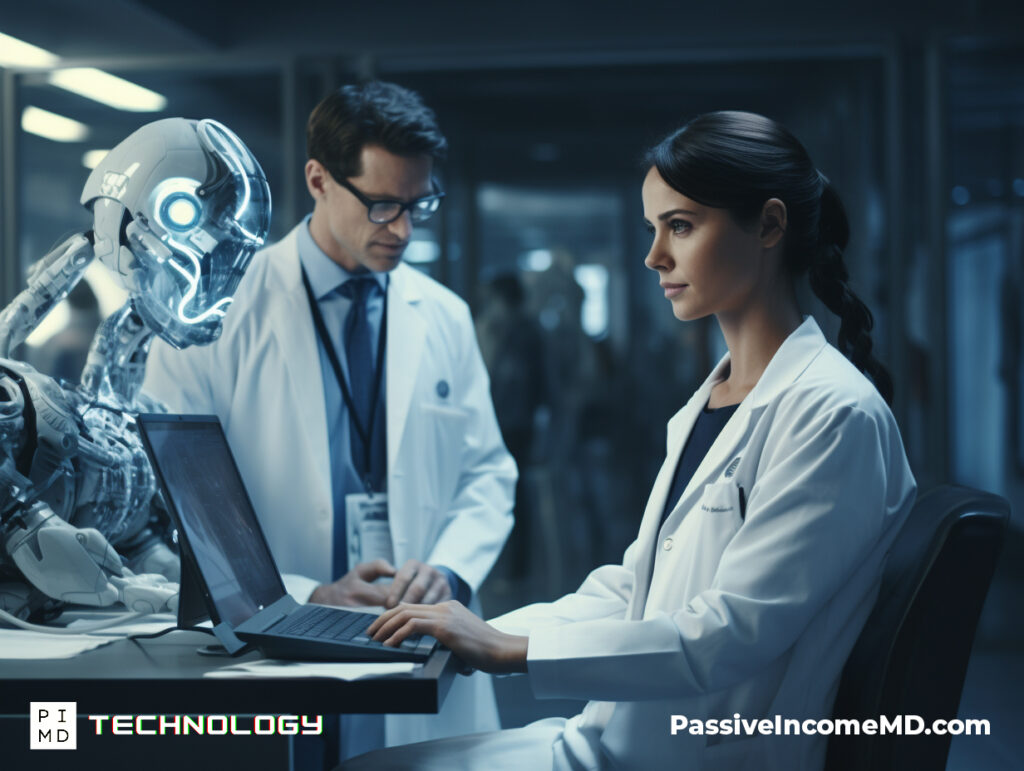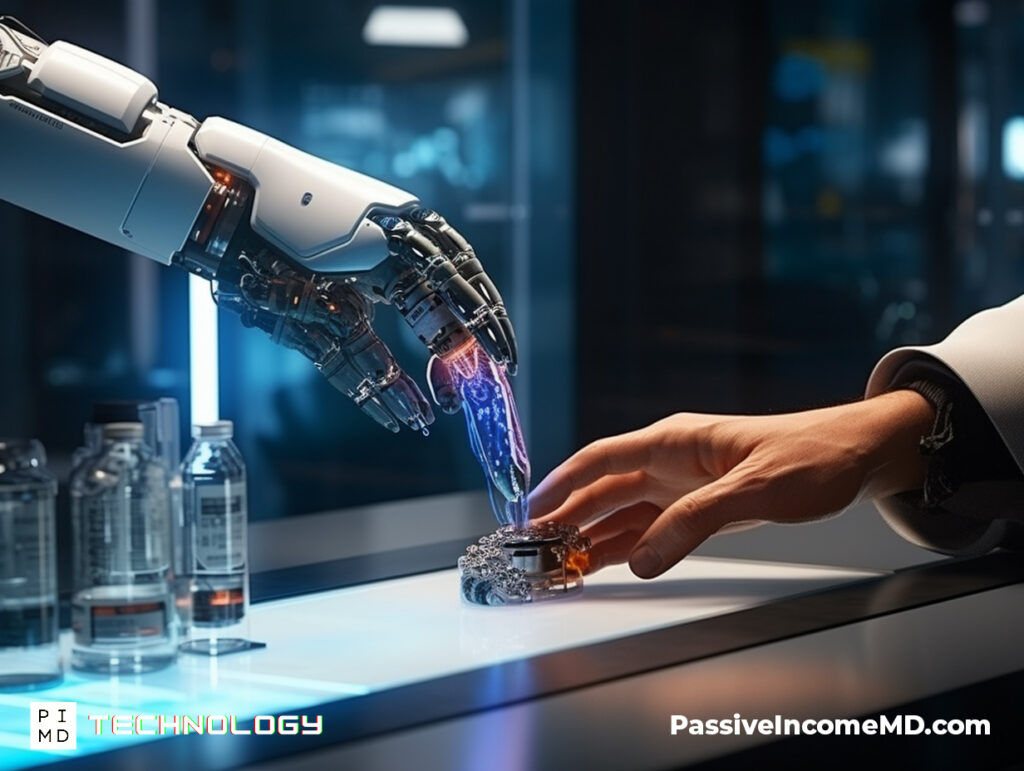Medicine, artificial intelligence, and physician burnout, the medical landscape has advanced significantly in forming a solution to a longstanding problem in the healthcare industry.
How exactly are doctors using AI, and what impact does it have on the healthcare industry? Let’s dive into a modern solution that may change the medical landscape for the better.
How Doctors Are Using AI
AI has been active in hospitals lately, in fact, In an interview from CNBC, Dr. Tra’chella Johnson Foy at Baptist Health in Jacksonville, Florida, shares how they harness the power of AI to streamline their day and reduce administrative tasks.
One example is that instead of manually typing out notes during patient visits, Dr. Foy uses the DAX app from Microsoft’s Nuance division. This AI-powered tool listens in on patient visits, transcribing conversations in real time.
This eliminates the need for manual note-taking so doctors can focus more on their patients, leading to more personalized care —and easing their risk for burnout.
Pretty amazing, right? You can watch the full interview here.
AI technology is promising but we are reminded to do our due diligence when dealing with these tools. It is still in its learning stages and there’s a lot of room left for improvement.
“Generative AI should open doors for access, it should provide pathways for providing equitable care that have not existed in the past.”
—Dr. Lloyd Minor (Dean, Stanford School of Medicine)
How is AI Being Used in Healthcare?
How is AI Being Used in Healthcare
AI’s role in healthcare isn’t just limited to transcription services. As you might already know, hospitals and clinics worldwide are integrating advanced artificial intelligence for diagnostic imaging, predictive analytics, and even robotic surgery.
For instance, AI algorithms can analyze X-rays and MRIs faster and sometimes with accuracy rivaling radiologists. Predictive analytics powered by AI can even forecast patient health risks, allowing for timely interventions.
Artificial Intelligence in healthcare has been around longer than this latest technology trend, it’s been far more advanced and developed than what the average person may realize. These advances are just coming to light following the release of the ever-famous ChatGPT, ushering in the new dawn of AI readily accessible to everyone.
INTERESTED IN AI FOR PHYSICIANS? SUBSCRIBE AND LISTEN TO EPISODE #169 PHYSICIAN’S TOOLS OF THE FUTURE: HARNESSING THE POWER OF AI, FT. DR. PETER KIM
What is AI Doing in the Medical Field?
 What is AI Doing in the Medical Field?
What is AI Doing in the Medical Field?
AI’s influence in the medical field is vast and varied. From administrative tasks to direct patient care, AI is reshaping how healthcare operates. What are some examples?
If you’re an entrepreneuring doctor wanting to create content for your clients, you can utilize Content Marketing strategies that leverage AI to tailor your conversation for specific audiences. Ensure that your patients receive relevant information; while also providing them additional and easy-to-digest information so that they can learn more about certain diseases, treatments, and any information that you as a physician want to share.
There are also tools like the ChatGPT Cheat Sheet and ChatGPT Special Prompts that can be used to enhance day-to-day tasks, and patient-doctor communication, making social plus digital interactions more efficient.
The possibilities are limitless. From a technical standpoint to a creative approach, AI is here to expand what medicine is already capable of. AI can even help doctor entrepreneurs gain massive advantages in their side hustle or practice.
Concerns with AI and Medicine
 Concerns with AI and Medicine
Concerns with AI and Medicine
Every technological advancement comes with concerns. Throughout history we’ve been introduced to the internet, smartphones, and many more tech advancements. All reminding us of the dangers they can potentially bring.
For AI and medicine, the ethical use of patient data is a significant concern. As AI systems require vast amounts of data to function effectively, ensuring that this data is used responsibly is of the greatest importance. Not to mention that it should be accurate too, down to the last letter.
While AI can process information and make recommendations, the human touch in medicine remains irreplaceable. Yes, that means physicians are without a doubt irreplaceable.
AI Tools like ChatGPT Creative Prompts can aid doctors in their tasks, but the empathy, understanding, and human connection that a doctor brings to a patient cannot be replicated by machines. They are not ‘humans’ after all, only tools that will better ‘humanity’.
Final Thoughts
The use of AI in hospitals is undeniable in the near future. It offers solutions to long-standing issues like doctor burnout and administrative burdens. However, as with all technological advancements, it’s essential to approach with caution, ensuring that while we harness AI’s power, we don’t lose the human essence of healthcare — the physician’s oath.
As the medical field continues to evolve, striking a balance between technology and the human touch will be the key to providing the best patient care. So feel free to use the latest AI tools for physicians, learn the latest tech, and possibly integrate them with your practice so you can provide the best you possibly can.
***PS: Do you know that we offer free AI tools? We have one that will generate the best prompts. and a ChatGPT Cheat Sheet that will level up your AI experience. Get it now!





